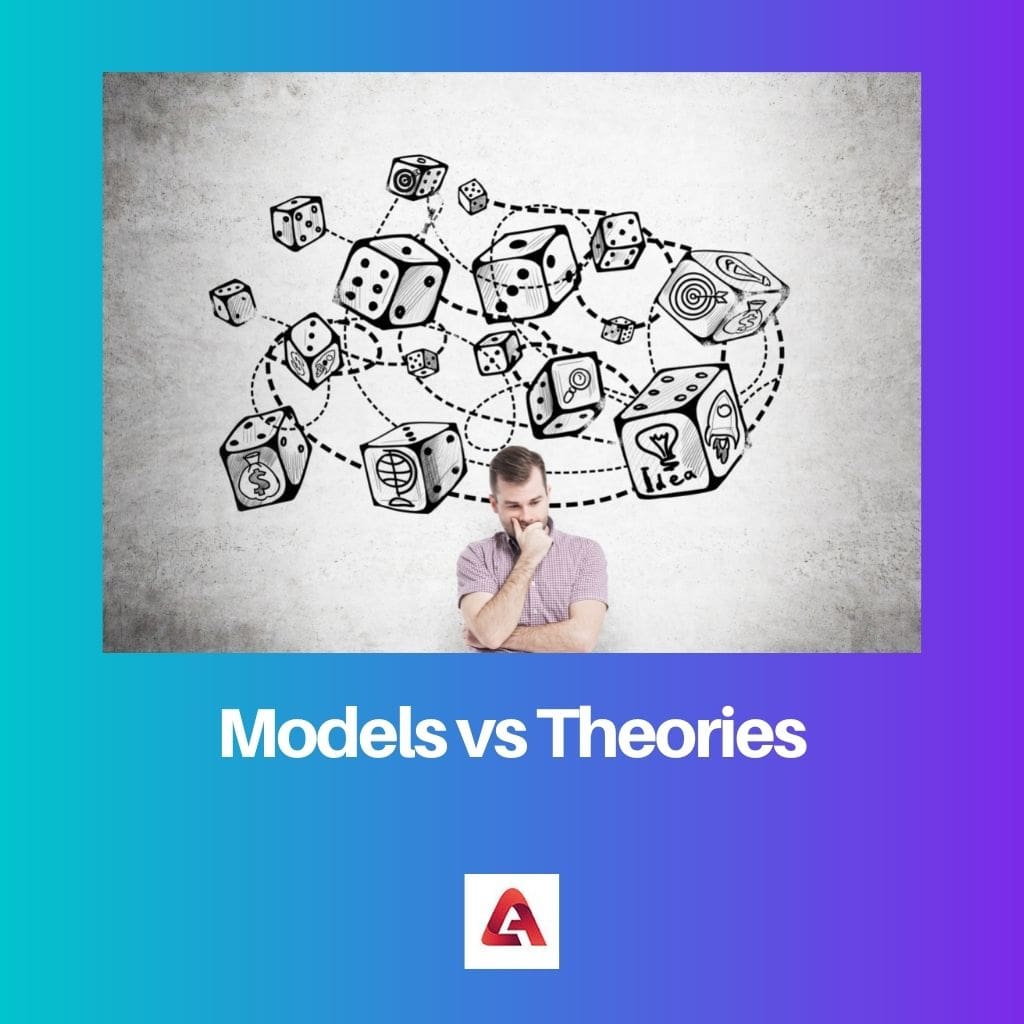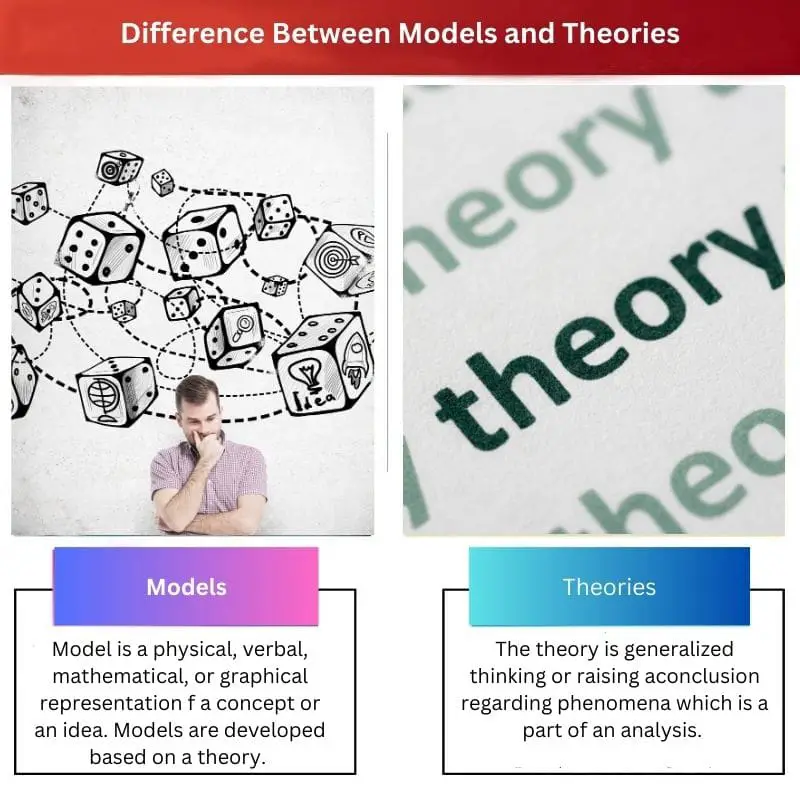Models and theories are factors one comes through with studying a particular topic. Both of them are produced at different stages of the study.
Key Takeaways
- Models are simplified representations or simulations of complex systems used to make predictions or gain insight into the system’s functions.
- Theories are broader explanations of natural phenomena or social behaviour, supported by empirical evidence and tested through experiments or observation.
- Models are based on specific assumptions and may not capture the full complexity of a system, while theories provide a more comprehensive understanding of a phenomenon.
Models vs. Theories
A model can be a mathematical representation of a theory. Graphics can also be used to represent a model. Models are further divided into four categories. A theory can be verified using a model. A theory can be a solution to a problem. Complicated ideas can be explained with a theory. Theory helps in proving a point with scientific logic.

A model is a physical, symbolic, visual, mathematical, or graphical representation of a concept or theory founded to clarify or make it simpler to understand.
On the other hand, the theory is a conceptualized framework proven by facts and logic by scientists.
Comparison Table
| Parameter of Comparison | Models | Theories |
|---|---|---|
| Concept | Models are a visual or verbal representation of theories | Theories are a conceptual framework of ideas |
| Nature | It simplifies a theory or concept | It explains or predicts phenomena |
| Work | Its work is to simplify a concept | Its work is to explain a concept with facts and logic |
| Base | They are based on theories or concepts | They are based on scientific logic or facts |
| Use | Used for verifying theories | Used for proving points |
| Guidance | Provides macro-level guidance | Provides micro-level guidance |
What are Models?
A model is a physical, verbal, mathematical, or graphical representation f a concept or an idea. Models are developed based on a theory.
On a few occasions, models have also seen s an application of theory; it consists of boundary conditions of a particular singular group as it serves projections on the particularly related theory.
4 types of models created easier to understand and reference, such as- the conceptual model, interactive lecture demonstration, mathematical and statistical mode, and teaching with visualizations.

What are Theories?
The theory is generalized thinking or raising a conclusion regarding phenomena which is part of an analysis. Scientists mostly use a theory to prove a particular point with the help of scientific evidence, explanation, and facts.
Theories also allow scientists to predict based on what they see and their knowledge and understanding regarding the phenomena. A theory is a body of knowledge that might or might not be supported y explanatory modules.
The theory is a tool for understanding and explaining complex concepts. Theories get improved as eventually more facts and evidence are provided, with increasing accuracy to support the scientific theory.

Main Differences Between Models and Theories
- Models are visual and verbal representations of theories or concepts, whereas theories are conceptual framework ideas on a phenomenon.
- Models simplify a theory or concept for better understanding, whereas theories explain or predict a phenomenon with their knowledge and understanding of the phenomena.





